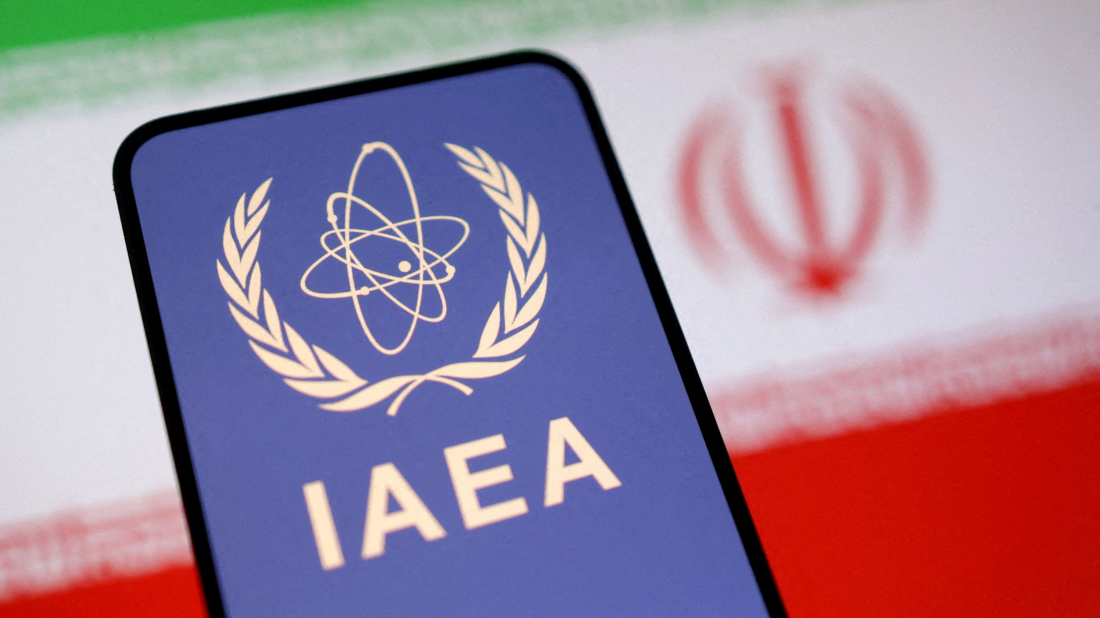Ukraine detains former energy minister in major anti-corruption case
Former Ukrainian energy minister German Galushchenko has been detained while attempting to leave the country, anti-corruption authorities said on Sund...

Iran said recent expert-level talks with the Vienna-based IAEA, as well as FM Abbas Aragchi’s negotiations with the EU’s Foreign Policy Chief Kaja Kallas, were positive as the clock ticks towards the end of September deadline to decide the termination or reimposition of nuclear sanctions.
Foreign Ministry Spokesman Esmaeil Baghaei said representatives from Iran and the United Nations nuclear watchdog, the International Atomic Energy Agency (IAEA), will be meeting soon to discuss the new bilateral cooperation modality in the wake of the 12-day Israel-U.S. attacks on the Islamic Republic’s civilian nuclear sites last June.
“The talks with the IAEA on Friday and Saturday in Vienna were positive. The date for the next round of negotiations is not decided, but both sides will be meeting most probably in coming days,” he said, to continue the talks at the expert-level discussions about the future format of cooperation after Iran’s civilian nuclear sites were bombed last June.
Speaking at the weekly press conference following the third round of talks in Vienna, the spokesman added that there are authorised ongoing contacts between Tehran and the agency despite of the legislation on suspension of the relations with the IAEA.
“The agency has come to the conclusion that our views on a new mode of cooperation shall be heard and our concerns be addressed,” he said regarding Iran’s proposal to redefine the ties with IAEA after its nuclear sites under the UN safeguards were bombed by Israel and the US.
The Iranian diplomat further termed the surprise meeting between Araghchi and Kallas held in Doha, Qatar, last week, as positive, expressing the hope that European Union will reconsider its approach toward Iran’s nuclear programme.
“We are in contact at the ministerial and deputy ministerial levels and both sides are negotiating with their relevant authorities at home,” Baghaei said.
The Doha meeting took place after the European powers – France, Germany, and the UK (E3) – which are signatories of the 2015 Iran nuclear agreement, the Joint Comprehensive Plan of Action (JCPOA), in a letter to the UN Security Council in August referred their dispute with Tehran to the world body.
The council’s member states will discuss the letter in September, whether to agree with the E3’s demand to return Iran’s sanctions or turn it down.
Iran has retaliated and together with China and Russia, which are also parties to the JCPOA as well the Security Council permanent members wielding the veto power, sent a joint letter rejecting the call by the European troika as legally baseless.
Moreover, Russia and China have proposed a resolution to extend Iran’s nuclear sanctions exemptions for six months and in the meantime to continue negotiations over reaching an agreement with Tehran on whether to remove the sanctions or reimpose them.
Iran’s Foreign Ministry spokesman said in addition to China and Russia, “there are other members of the Security Council dissatisfied with the E3’s move” calling for snapback of the nuclear sanctions under Resolution 2231 which expires in October.
To a question about an urgent draft bill in the Parliament (Majlis) suggesting Tehran’s withdrawal from the Non-Proliferation Treaty (NPT) if the nuclear sanctions are reimposed, Baghaei said Iran is a member of the treaty and abiding by its obligations.
“It is an issue which must be decided at the supreme level of the country,” said Baghaei, “No decision has been made in this regard by the Parliament.”
U.S. Ambassador to NATO Matthew Whitaker said China has the power to bring an end to Russia’s war in Ukraine, arguing that Beijing is enabling Moscow’s military campaign.
New Zealand declared a state of emergency in Otorohanga on Saturday (14 February) after torrential rain caused severe flooding, power outages and evacuations.
Austria’s Janine Flock won the gold medal in the women’s skeleton event at the Milano-Cortina 2026 Winter Olympics on Saturday.
“Real security guarantees are needed before the war ends,” Ukrainian President Volodymyr Zelenskyy said at the Munich Security Conference on Saturday (14 February), warning that Russian aggression shows no sign of relenting.
U.S. Secretary of State Marco Rubio on Sunday (15 February) called it “troubling” a report by five European allies blaming Russia for killing late Kremlin critic Alexei Navalny using a toxin from poison dart frogs.
Iran’s Supreme National Security Council Secretary Ali Larijani said the United States could evaluate its own interests separately from those of Israel in ongoing negotiations between Tehran and Washington.
Four people were killed on Sunday evening in an Israeli drone strike targeting a vehicle in eastern Lebanon near the Lebanese-Syrian border, Lebanon’s official National News Agency (NNA) reported.
Israel’s cabinet on Sunday approved measures aimed at expanding state oversight of land in the occupied West Bank and facilitating land purchases by settlers, a move Palestinian officials described as a 'de-facto annexation.'
U.S. President Donald Trump said on Sunday that member states of the newly formed Board of Peace will announce pledges exceeding $5 billion for Gaza’s reconstruction during a gathering in Washington this week.
Iran is pursuing a nuclear agreement with the U.S. that delivers economic benefits for both sides, an Iranian diplomat was reported as saying on Sunday (15 February), days before a second round of talks between Tehran and Washington.
You can download the AnewZ application from Play Store and the App Store.

What is your opinion on this topic?
Leave the first comment